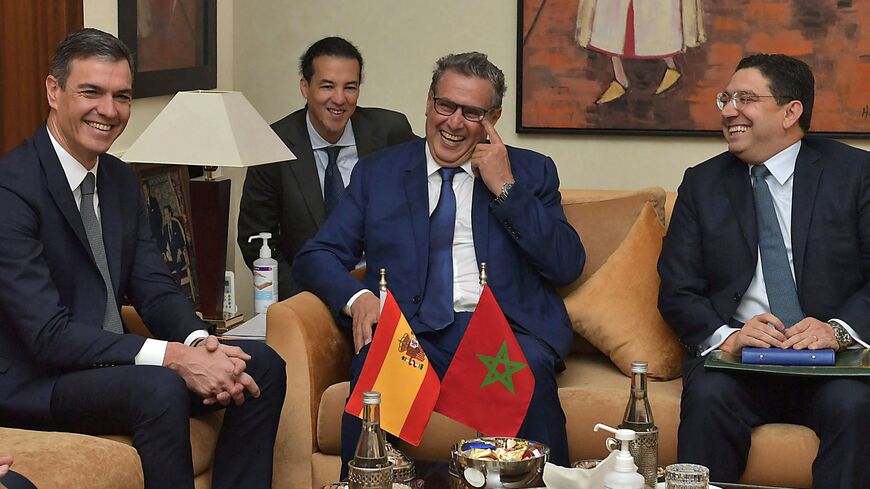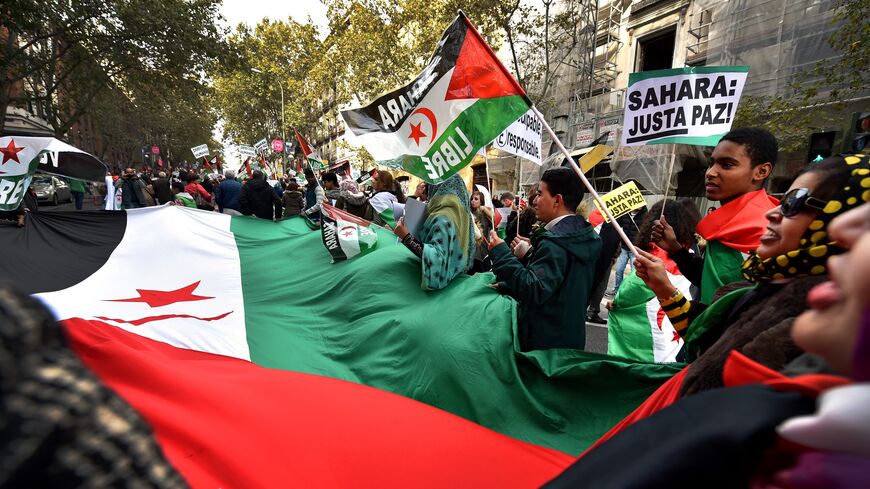As floods ravage Spain, Morocco utilizes disaster diplomacy, offers help
Relations between Morocco and Spain are warming after years of tensions, and a railway linkage project is gaining momentum.

Morocco was one of the first countries to offer assistance after floods devastated Spain, the Spanish government said on Tuesday, indicating closer cooperation between the two countries.
The Spanish Ministry of the Interior said it is preparing to incorporate 70 Moroccan workers and 24 trucks into the relief efforts following recent floods in the eastern province of Valencia. Along with counterparts from France and Portugal, the Moroccan teams will start working to remove waste and mud in the next 24 to 48 hours, according to a statement from the ministry.
The ministry said that the offer of help from Morocco was “one of the first” it received after the floods.
Spain was rocked by floods in late October following heavy rains, with Valencia being the hardest hit. Authorities have confirmed at least 223 deaths so far, in addition to extensive damage incurred. The Valencian government has asked Madrid for a 31 billion euro ($32.74 billion) relief package, and Spain approved 3.76 billion euros ($4.01 billion) toward reconstruction on Monday, following a 10.6 billion euro ($11.19 billion) relief package last week.
Spain was hit by more heavy rain on Wednesday, this time in the southern province of Andalucia. Parts of Valencia, as well as Catalonia in the northeast, were placed on high alert.
Why it matters: Spain-Morocco ties have historically been tense but began to improve in 2022 when Spain endorsed Morocco’s autonomy plan for Western Sahara. The dispute over the Spanish territories Ceuta and Melilla, located on the North African coast and bordering Morocco, and illegal migration from Morocco into Spain were among the sore points before then.
Western Sahara, which was a Spanish colony until 1976, is regarded by much of the international community as illegally occupied by Morocco. The United States, however, notably recognized Moroccan sovereignty in 2022.
Cooperation between Spain and Morocco is steadily increasing as relations improve. In February, the Spanish aerospace firm Aciturri signed a deal with the Moroccan industrial development company Midparc to build a new manufacturing facility in the North African country.
Along with Portugal, Spain and Morocco will host the World Cup in 2030.
Morocco has worked to prevent illegal migration to Spain recently and pushed back a massive wave of hundreds seeking to enter Ceuta in September.
A railway project linking Spain and Morocco via an undersea tunnel through the Strait of Gibraltar has gained momentum recently. Earlier this year, the Moroccan National Company for Strait Studies said work had begun to explore the feasibility of the project, including regarding financials, according to multiple reports.
The project to link Spain and Morocco via the tunnel was first conceived in the late 1970s and early 1980s but has not made considerable progress since then. Only around 14.5 kilometers (eight miles) separates Spain and Morocco at the closest point of the strait. The mainland part of the Gibraltar Strait consists of the British territory of the same name.
The governmental Spanish Society for Fixed Communications Studies across the Strait of Gibraltar (SECEGSA) is responsible for the Spanish side of the project. The Spanish news outlet Vozpopuli reported on Sunday that Spain approved a roughly 500,000 euro investment in seismometers for the project. The story was picked up by Moroccan media, but SECEGSA did not immediately respond to Al-Monitor’s request for confirmation.
Seisometers are used to study seismic activity related to earthquakes, volcanic eruptions and other events.








